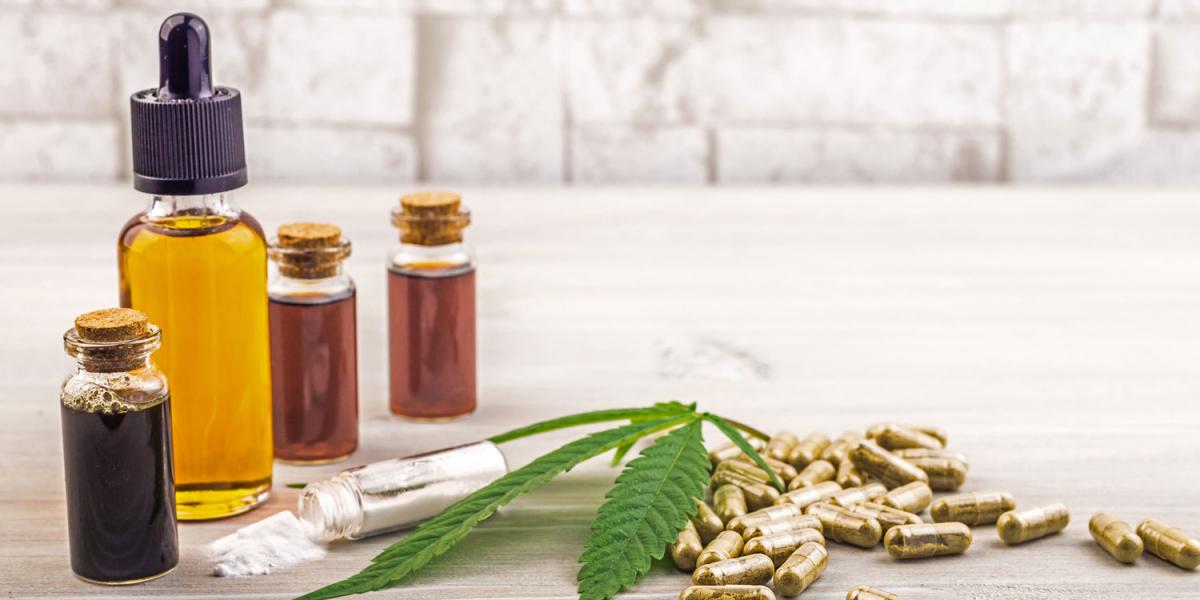You are here

The U.S. Food and Drug Administration (FDA) recently issued a press release concerning a warning letter sent to a company marketing food and dietary supplements for both humans and animals that contain cannabidiol (CBD). Days later, FDA's Principal Deputy Commissioner, Amy Abernethy, M.D., Ph.D. testified before the Senate Committee on Agriculture, Nutrition, and Forestry concerning the "Hemp Production and the Farm Bill" signaling that products marketed containing CBD would continue to be regulated as drugs until additional regulatory pathways become available.
Verisk 3E Analysis
The warning letter cautioned the online retailer that its sales of unapproved products containing CBD with unsubstantiated claims of treatment, cure, mitigation and/or prevention of cancer, Alzheimer's disease, opioid withdrawal, pain and anxiety in both humans and in pets, among other diseases or conditions, violated federal laws.
The FDA reviewed information on the products advertised on the company's website and social media outlets and determined that the company’s efforts to market the products as dietary supplements were not valid, because the products are intended for use in the diagnosis, cure, mitigation, treatment or prevention of disease and/or intended to affect the structure or any function of the body. Moreover, as the warning letter pointed out, products containing CBD cannot be sold as dietary supplements unless they were brought to market before the substance’s approval as an active ingredient in a new drug for the treatment of seizures (Epidiolex).
The agency therefore warned that the company’s products qualify as unapproved new drugs and are being sold in violation of the Federal Food, Drug, and Cosmetic Act (FD&C Act) (section 201(g(1), 21 U.S.C. 321 (g)(1)) as only drugs approved by the FDA may be used for treatment, etc. of named illnesses and conditions. FDA has allowed 15 days for the retailer to respond to the letter. The manufacturer must notify the FDA in writing of the specific steps taken to correct the violations in the warning letter.
On 25 July 2019, FDA's Principal Deputy Commissioner, Amy Abernethy, M.D., Ph.D. testified before the Senate Committee on Agriculture, Nutrition, and Forestry concerning the current regulatory status of hemp in light of the 2018 Farm Bill. The bill removed hemp, defined as cannabis (Cannabis sativa L.) and derivatives of cannabis with extremely low concentrations of the psychoactive compound delta-9-tetrahydrocannabinol (THC) (no more than 0.3 percent THC on a dry weight basis), from the definition of marijuana in the Controlled Substances Act (CSA). Since the bill preserved FDA’s authority over hemp products, these products must meet all FDA applicable requirements. Dr. Abernethy spoke of FDA’s recent approval of a drug containing CBD as the active ingredient for the treatment of seizures (Epidiolex). This new drug had to first be approved by the FDA before being introduced for use by patients under the FD&C Act. Products (food/dietary supplements) to which CBD has been added may not be introduced into interstate commerce under the FD&C Act before testing and authorization.
Dr. Abernethy commented on the public meeting held on 31 May 2019 to obtain scientific data and information on the safety, manufacturing, product quality, marketing and labeling and sale of products containing cannabis or cannabis derived compounds. The public hearing raised concerns including the need for additional and better data, both the risks and benefits of CBD, manufacturing and adulteration, as well as consistent terminology. Nearly 4,500 comments were submitted which are currently under review.
Business Impact
Any food or dietary supplement marketed as containing CBD as an active ingredient that has not been first approved by the FDA is in violation of the FD&C Act. There is a provision which would allow FDA to create an exception to this prohibition, however due to the testing of the new drug containing CBD, FDA identified certain safety risks. FDA is also concerned about the variations in content and types of CBD containing products (good manufacturing practices (GMP)). Additionally, questions remain concerning the amount of CBD that may be consumed in a day as well as the form it takes, along with drug interactions, long term risks and effects on vulnerable populations.
FDA states that it is committed to establishing a sound science-based policy as quickly and efficiently as possible and is "exploring potential pathways for various types of CBD products to be lawfully marketed." However, FDA’s recent warning letter indicates that currently FDA will not allow the marketing of products containing CBD in violation of the FD&C Act.

 Top
Top